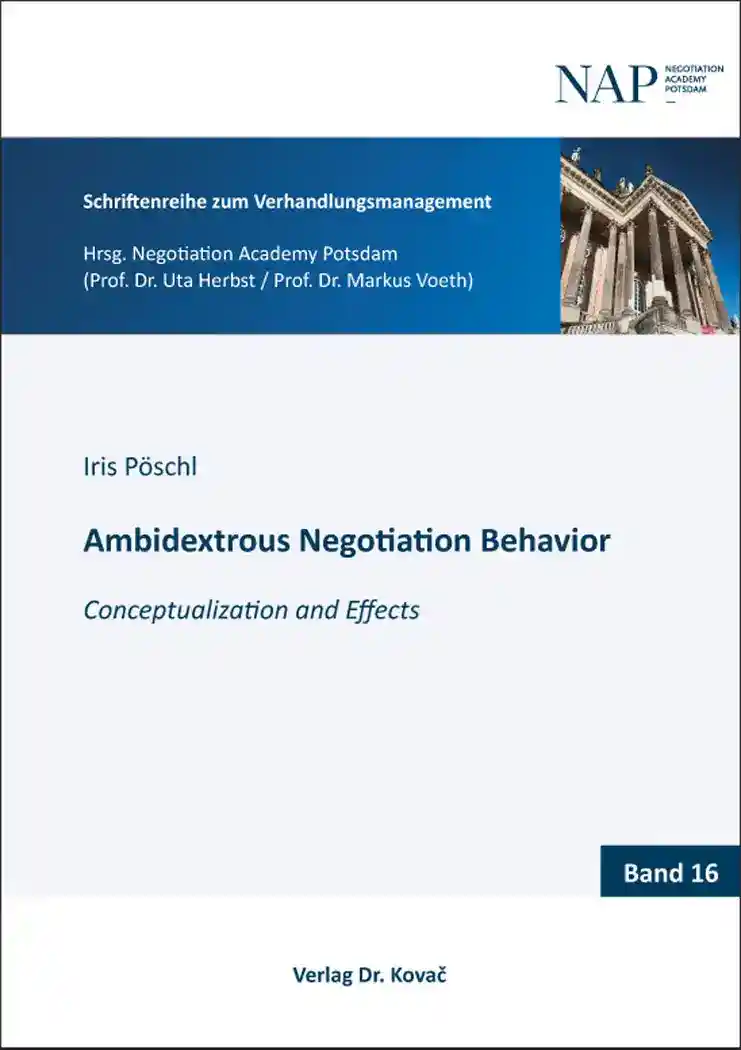Iris PöschlAmbidextrous Negotiation Behavior
Conceptualization and Effects
Schriftenreihe zum Verhandlungsmanagement, volume 16
Hamburg 2021, 192 pages
ISBN 978-3-339-12284-1 (print)
ISBN 978-3-339-12285-8 (eBook)
About this book deutschenglish
Ambidexterity has evolved into one of the most promising blueprints for organizations to achieve long-term prosperity in a wide range of contexts. Ambidextrous organizations have the ability to be equally successful in the conflicting dimensions of exploitation and exploration. While exploitation pertains to activities linked to efficiency and scaling effects in order to optimize the core business, exploration centers on flexibility and variability in order to remain adaptable. With regard to the question of how organizations can use ambidexterity as a strategic competitive advantage, individual competencies play an important role alongside general structural and processual design parameters. Employees’ behavior, therefore, has a decisive influence on ambidexterity at the organizational level and thus on the company’s economic prosperity. While managers and employees in diverse corporate contexts already use the advantages of ambidexterity in their everyday work, theoretical and empirical insights into the conceptualization and impact of an ambidextrous negotiation approach are missing. This is surprising, since negotiators’ challenge to deal with competing demands is omnipresent: New technologies and market actors trigger unfamiliar situations which require negotiators to act more flexibly without jeopardizing negotiation success with regard to efficiency targets. So far, negotiators lack practical guidance on how to strategically use an ambidextrous approach at the negotiation table. Thus, the effectiveness of individual ambidexterity in negotiations needs to be empirically investigated and an in-depth understanding of exploratory and exploitative behaviors in negotiations is required. This dissertation focuses on both thrusts. Furthermore, specific situations are considered in order to be able to evaluate the effective use of ambidexterity in negotiations also on the basis of situational criteria. In total, three empirical studies are conducted to shed light on the underlying ambidextrous behavioral mechanisms and their impact on negotiation performance. In general, a special focus is placed on the benefits of ambidexterity in buyer-seller transactions with various implications derived from the findings and transferred into negotiation practice.
